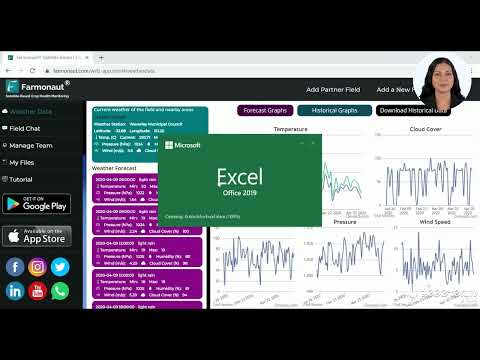Revolutionizing Water Resource Management in South Carolina: Sustainable Solutions for Agriculture and Flood Prevention
“South Carolina’s water resource policy addresses challenges across 11,000+ miles of rivers and 1,600+ square miles of estuaries.”
In the heart of the American Southeast, South Carolina stands at a critical juncture in its journey towards sustainable water resource management. As we navigate the complexities of balancing economic growth with environmental stewardship, our state faces unprecedented challenges in maintaining water quality and mitigating flood risks. Today, we’ll explore how innovative approaches and cutting-edge technologies are reshaping the landscape of water management in the Palmetto State, with a particular focus on sustainable agriculture practices and flood prevention strategies.
The Water Imperative: South Carolina’s Lifeline
Water is the lifeblood of South Carolina, coursing through our rivers, nourishing our crops, and sustaining our communities. From the bustling port cities of Charleston and Georgetown to the fertile agricultural lands of the Pee Dee region, water plays a pivotal role in our state’s economy, ecology, and way of life. However, rapid development along our waterways and wetlands has brought new challenges to the forefront of water resource management.
As Paul Gayes, Executive Director of the Burroughs & Chapin Center for Marine & Wetlands Studies, aptly points out, “Water is essential for various uses, including drinking, agriculture, recreation, and transportation. But as development increases, it introduces pollutants that compromise water quality while diminishing the natural filtration system provided by the ecosystem.”

The Triple Threat: Development, Pollution, and Flooding
The interconnected challenges of overdevelopment, water pollution, and increased flooding risk form a formidable triple threat to South Carolina’s water resources. Debra Bufkin, Executive Director of the Winyah Rivers Alliance, highlights a troubling trend: “Overdevelopment alongside waterways intensifies flooding issues and leads to more pollution.” This observation is echoed by Preston Kelly, riverkeeper for the Waccamaw River, who notes that while new developments raise awareness of waterways, they also contribute to a decline in river health due to increased runoff full of pollutants.
The consequences of this development pattern are manifold:
- Degradation of natural filtration systems
- Increased frequency and severity of flooding events
- Compromised water quality for drinking and recreation
- Challenges to agricultural productivity
- Threats to aquatic ecosystems and biodiversity
A Comprehensive Approach to Water Resource Management
Recognizing the urgency of these challenges, Governor Henry McMaster has taken proactive steps to develop a comprehensive water resource policy for South Carolina. This policy aims to strike a delicate balance between supporting economic growth and ensuring environmental sustainability. At its core, the policy focuses on several key strategies:
- Smart irrigation systems for efficient water use in agriculture
- Precision agriculture techniques to optimize water efficiency
- Wetland conservation to maintain natural flood buffers
- Innovative stormwater management solutions
- Agricultural runoff mitigation to protect water quality
Explore how Farmonaut’s agritech solutions can contribute to these water management strategies: Farmonaut Web App
Smart Irrigation Systems: Precision in Water Management
One of the most promising developments in water resource management for agriculture is the implementation of smart irrigation systems. These advanced systems use a combination of soil moisture sensors, weather data, and AI-driven algorithms to deliver water precisely when and where crops need it most.
“Precision agriculture techniques can reduce water usage by up to 30% while maintaining or improving crop yields in South Carolina.”
Benefits of smart irrigation systems include:
- Significant reduction in water waste
- Improved crop yields through optimal watering
- Decreased energy costs associated with water pumping
- Reduced runoff and nutrient leaching
Farmonaut’s satellite-based crop health monitoring system plays a crucial role in supporting smart irrigation practices. By providing real-time data on vegetation health and soil moisture levels, farmers can make informed decisions about irrigation timing and volume.
Precision Agriculture: Maximizing Efficiency, Minimizing Impact
Precision agriculture goes hand-in-hand with smart irrigation, offering a holistic approach to farm management that optimizes resource use while minimizing environmental impact. In South Carolina, the adoption of precision agriculture techniques is revolutionizing how we approach water efficiency in farming.
Key components of precision agriculture for water efficiency include:
- Variable rate irrigation based on field-specific data
- Crop-specific water management plans
- Use of drought-resistant crop varieties
- Implementation of conservation tillage practices
Discover how Farmonaut’s AI-powered advisory system can enhance your precision agriculture practices: Farmonaut Android App
Wetland Conservation: Nature’s Flood Defense
Wetlands are critical components of South Carolina’s natural infrastructure, acting as nature’s sponges to absorb excess water during heavy rainfall events. However, the rapid development of wetlands and floodplains has diminished their capacity to manage stormwater effectively.
Efforts to conserve and restore wetlands are essential for:
- Natural flood prevention
- Water quality improvement through filtration
- Habitat preservation for diverse wildlife
- Carbon sequestration to combat climate change
Erin Donmoyer, a local riverkeeper, emphasizes that “the responsibility for protecting these resources lies not just with the government but with the citizens of South Carolina.” Community engagement in wetland conservation efforts is crucial for their long-term preservation.

Innovative Stormwater Management Solutions
As urban and suburban areas expand in South Carolina, traditional stormwater management systems are often overwhelmed during heavy rainfall events. Innovative solutions are needed to address this growing challenge.
Some cutting-edge approaches to stormwater management include:
- Green infrastructure implementation (e.g., rain gardens, bioswales)
- Permeable pavement to reduce runoff
- Rainwater harvesting systems for irrigation and non-potable use
- Smart stormwater systems with real-time monitoring and control
Learn how Farmonaut’s satellite data can support stormwater management planning: Farmonaut iOS App
Agricultural Runoff Mitigation: Protecting Water Quality
Agricultural runoff is a significant source of water pollution in South Carolina, carrying excess nutrients, pesticides, and sediment into our waterways. Mitigating this runoff is crucial for maintaining water quality and protecting aquatic ecosystems.
Effective strategies for agricultural runoff mitigation include:
- Implementation of buffer strips along waterways
- Cover crop utilization to reduce soil erosion
- Precision application of fertilizers and pesticides
- Contour farming and terracing on sloped lands
Farmonaut’s satellite-based crop health monitoring can play a vital role in optimizing fertilizer application, reducing the likelihood of excess nutrients entering waterways.
Water Quality Monitoring: The Foundation of Effective Management
Comprehensive water quality monitoring is essential for effective water resource management in South Carolina. Regular monitoring helps identify pollution sources, track the effectiveness of conservation efforts, and ensure the safety of drinking water supplies.
Key aspects of water quality monitoring include:
- Continuous monitoring of key parameters (e.g., dissolved oxygen, pH, turbidity)
- Periodic testing for contaminants and pathogens
- Citizen science initiatives for widespread data collection
- Use of remote sensing technologies for large-scale assessments
Explore how Farmonaut’s satellite data can complement water quality monitoring efforts: Farmonaut API
Watershed Protection Strategies: A Holistic Approach
Effective water resource management requires a holistic approach that considers entire watersheds rather than isolated water bodies. South Carolina is implementing comprehensive watershed protection strategies to safeguard drinking water sources, support agriculture, and maintain recreational resources.
Key components of watershed protection include:
- Land use planning to minimize impervious surfaces
- Riparian zone restoration and protection
- Erosion control measures in construction and agriculture
- Public education and outreach on watershed stewardship
As Paul Gayes emphasizes, “We need to view all water bodies as part of one interconnected system, recognizing that ocean and watershed water must be managed together to ensure sustainability.”
Flood Prevention Technologies: Embracing Innovation
As climate change increases the frequency and intensity of extreme weather events, South Carolina is turning to innovative flood prevention technologies to protect communities and infrastructure.
Emerging flood prevention technologies include:
- Advanced flood modeling and prediction systems
- Deployable flood barriers for urban areas
- Nature-based solutions like constructed wetlands
- Smart water management systems with automated controls
Discover how Farmonaut’s weather forecasting capabilities can support flood prevention efforts: Farmonaut API Developer Docs
The Role of Technology in Water Resource Management
Technology plays a crucial role in modernizing water resource management in South Carolina. From satellite-based monitoring to AI-driven decision support systems, innovative technologies are enhancing our ability to manage water resources efficiently and sustainably.
Key technological advancements include:
- Remote sensing for large-scale water resource assessment
- IoT sensors for real-time water quality and quantity monitoring
- Blockchain-based systems for water rights management and trading
- Machine learning algorithms for predictive maintenance of water infrastructure
Farmonaut’s suite of agritech solutions exemplifies how technology can contribute to sustainable water management practices in agriculture. By providing farmers with real-time data on crop health, soil moisture, and weather patterns, Farmonaut enables more informed decision-making and efficient resource use.
Community Engagement and Education
Effective water resource management requires active participation from all stakeholders, including government agencies, businesses, and individual citizens. Community engagement and education initiatives are essential for fostering a culture of water conservation and stewardship in South Carolina.
Key aspects of community engagement include:
- Public workshops and educational programs on water conservation
- Citizen science projects for water quality monitoring
- Community-based watershed restoration initiatives
- Partnerships between schools, universities, and water management agencies
Upcoming opportunities for public participation include a meeting hosted by the Pee Dee River Basin Council on December 14 in Darlington, where citizens can learn about and contribute to local water management efforts.
South Carolina Water Resource Management Strategies
| Strategy | Purpose | Estimated Water Savings (%) | Flood Risk Reduction (%) |
|---|---|---|---|
| Smart Irrigation Systems | Optimize water use in agriculture | 20-30% | 5-10% |
| Precision Agriculture | Enhance water efficiency in farming | 15-25% | 3-8% |
| Wetland Conservation | Maintain natural flood buffers | 10-15% | 20-30% |
| Stormwater Management | Reduce urban flooding and runoff | 5-10% | 15-25% |
| Agricultural Runoff Mitigation | Protect water quality | 10-20% | 5-15% |
The Path Forward: Balancing Growth and Sustainability
As South Carolina continues to grow and develop, the challenge of balancing economic progress with environmental stewardship becomes increasingly complex. However, through innovative water resource management strategies, cutting-edge technologies, and active community engagement, we can create a sustainable future for our state’s water resources.
Key priorities for the future include:
- Continued investment in water infrastructure modernization
- Expansion of precision agriculture practices across the state
- Enhanced collaboration between urban planners, environmentalists, and agricultural stakeholders
- Ongoing research into climate-resilient water management strategies
- Development of comprehensive water conservation education programs
By embracing these priorities and leveraging innovative solutions like those offered by Farmonaut, South Carolina can set a national example for sustainable water resource management in the face of growing environmental challenges.
FAQ Section
Q: What are the main challenges facing water resource management in South Carolina?
A: The main challenges include rapid development along waterways, pollution from urban and agricultural runoff, increased flooding risks, and the need to balance economic growth with environmental protection.
Q: How can precision agriculture help conserve water?
A: Precision agriculture uses technologies like satellite imaging and soil sensors to optimize water use, potentially reducing water consumption by up to 30% while maintaining or improving crop yields.
Q: What role do wetlands play in flood prevention?
A: Wetlands act as natural sponges, absorbing excess water during heavy rainfall events and reducing flood risks in surrounding areas.
Q: How can individual citizens contribute to water resource management?
A: Citizens can participate in water conservation efforts, support local watershed protection initiatives, and engage in community education programs about water resource management.
Q: What innovative technologies are being used for water quality monitoring?
A: Technologies include real-time sensors, satellite-based remote sensing, and citizen science mobile apps for widespread data collection on water quality parameters.
Conclusion: A Collaborative Effort for a Sustainable Future
Revolutionizing water resource management in South Carolina is not just a goal—it’s a necessity for our state’s future prosperity and environmental health. Through the implementation of sustainable solutions for agriculture and flood prevention, we are taking significant steps towards ensuring the long-term availability and quality of our water resources.
As we move forward, the collaboration between government agencies, agricultural stakeholders, technology providers like Farmonaut, and engaged citizens will be crucial in addressing the complex challenges of water resource management. By embracing innovation, prioritizing conservation, and fostering a culture of environmental stewardship, South Carolina can set a powerful example of how to balance growth with sustainability in the 21st century.
Together, we can create a future where our rivers flow clean, our wetlands thrive, our farms flourish efficiently, and our communities remain resilient in the face of environmental challenges. The journey towards sustainable water resource management is ongoing, but with dedication, innovation, and collective action, we can ensure that South Carolina’s water resources continue to support and enrich our lives for generations to come.



